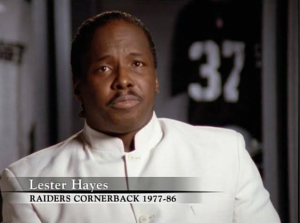
RED SOX LATEST: The 2 Possible Dilemmas Hindering Tanner Houck’s Extension with the Red Sox
The Boston Red Sox face a crucial decision in the coming months regarding the future of their young pitcher, Tanner Houck. As a talented arm with the potential to be a mainstay in their rotation, Houck has shown flashes of brilliance. However, two significant dilemmas loom large when it comes to negotiating a potential contract extension with the Red Sox. The first is his declining performance compared to last season, and the second is his clear desire to secure a larger payday, with the 2024 season playing a pivotal role in shaping his financial future. Together, these factors put both Houck and the team in a delicate position.
1. Declining Performance: A Hindrance to Long-Term Confidence

Tanner Houck’s performance in 2023 has raised concerns about his trajectory. After a promising start to his career, Houck’s numbers took a noticeable dip last season, which may hinder the Red Sox’s confidence in committing to a long-term deal. Over the past year, his ERA ballooned to an unsightly 5.05, up from a more respectable 3.15 in 2022. His strikeout rate also saw a decline, and while his fastball velocity remained steady, Houck struggled to maintain consistency. There were flashes of the promise that made him a key piece in Boston’s pitching staff, but they were often overshadowed by inconsistent outings and an inability to stay healthy.
From the Red Sox’s perspective, the drop-off in Houck’s production is a major concern. Given that teams are increasingly cautious about long-term investments in pitchers, especially those with injury concerns or unproven durability, the Red Sox are likely to hesitate before offering a large extension. In professional baseball, where pitching is such a fragile asset, teams often want to see more than just potential; they need proof that a pitcher can consistently contribute to the starting rotation without major regression. This is especially true in a market like Boston, where expectations are high, and performance under pressure is key.
With Houck’s numbers trending downward, the Red Sox may be wary of locking him into a deal that could potentially limit their financial flexibility or lock them into a long-term contract for a player whose future may be uncertain. This brings us to the second dilemma: Houck’s bargaining power and his reluctance to accept a low offer.
2. Houck’s Desire for a Larger Paycheck and the Impact of 2024
The second, more complicated dilemma for both Houck and the Red Sox revolves around his desire to secure a contract extension that aligns with his financial ambitions. Houck, now entering his second year of eligibility for arbitration (starting in 2025), will be in a prime position to negotiate a significant salary increase based on his performance in 2024. However, with his performance in 2023 not quite matching the expectations of a potential frontline starter, the Red Sox face a tricky balancing act: how to reward Houck’s potential while protecting the team from overcommitting to a player whose future is still uncertain.
Houck’s reluctance to sign a low-ball offer comes from his recognition that his earning power in arbitration will be determined largely by his performance in the upcoming season. If he delivers a standout year in 2024, he could secure a much larger contract in 2025 when his arbitration eligibility kicks in. At the very least, he would be in line for a significantly higher salary, which would make a smaller extension in 2024 less appealing. The financial realities of baseball dictate that players like Houck, who show flashes of brilliance but have not yet proven consistency, often prefer to test the open market or use the arbitration process to maximize their earnings.

The Red Sox are likely aware of this dynamic. If they offer Houck a lower-than-expected extension deal in an attempt to secure a bargain, they risk alienating him. Such an offer could create bad blood, leading Houck to look for opportunities elsewhere or push for a bigger payday through arbitration. At the same time, the team must weigh the possibility that Houck’s 2024 performance may not meet expectations. If his numbers do not improve, any extension the team offers could turn into a poor investment.
Thus, Houck’s bargaining power is tied to his performance in 2024, making it a high-stakes season for both him and the Red Sox. If he struggles, he may not get the lucrative extension he desires, but if he excels, he could significantly raise his value in arbitration and possibly secure a better deal elsewhere.
Conclusion: A Crossroads for Both Sides
For Tanner Houck, 2024 is a pivotal season that could shape his financial future and his place in the Red Sox organization. The team is caught between two dilemmas: Houck’s declining numbers, which make a long-term extension seem like a gamble, and the fact that Houck will certainly not settle for a low-ball offer given his ability to significantly increase his earning potential through arbitration. The coming season will determine whether the Red Sox are willing to take the risk of extending Houck at a lower price now or whether they will play the waiting game, hoping that his 2024 performance will prove his worth. Regardless of the outcome, it’s clear that the relationship between Houck and the Red Sox is at a crossroads, with both sides facing significant stakes as they look toward the future.






